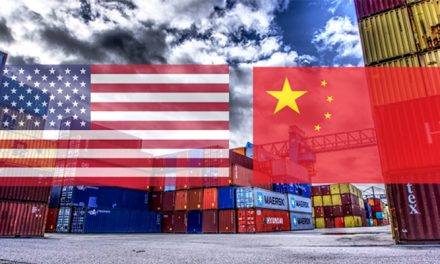
Textile exports fell 13 per cent year-on-year (y-o-y) to Rs. 9,704 cr in January on the back of a sharp slide in cotton textile exports. Cumulative exports of textile and apparel products dropped 4 per cent y-o-y to Rs. 1.87 lakh cr in April-January 2018. While cotton textile exports declined 1 per cent y-o-y to Rs. 53,818 cr during the timeframe, apparel exports decreased 5 per cent y-o-y to Rs. 88,709 cr, data sourced by Confederation of Indian Textile Industry (CITI) showed. “The share of textile and apparel exports (in overall exports) has also declined from 14 per cent to 12 per cent in January 2018 as compared to the corresponding period the previous year,” said Sanjay Jain, Chairman, CITI. “One of the key factors for decline in exports is embedded duties, which are more than 5 per cent, and the same is not getting refunded at any stage,” he stated.
Incidentally, the fall in exports comes at a time when there has been a continuous rise in imports of textile products after the implementation of GST. Import of textile yarn, fabric and made-ups has increased by 15 per cent y-o-y to Rs. 9,914 cr during April-January 2018.“This is posing a big threat to the Indian textile industry as post-GST the effective import duties have come down sharply, thus, making imports cheaper for the domestic industry by 15 per cent – 20 per cent,” Jain said. He urged the government to offer export incentives for cotton yarn as it is the most vulnerable sector. Cotton yarn exports plunged by more than 26 per cent between 2013-14 and 2016-17 despite the textile industry adding over 3 mn spindles and 62,000 rotors in spinning capacity during this timeframe, he pointed out.
India can retain its competitiveness in the global market by including cotton yarn under MEIS (merchandise exports from India scheme) and providing ROSL (rebate of state levies) package for fabric and cotton yarn, Jain said.“The industry has been asking the government for increase in customs duty across the value chain (yarn and fabric),” he said. “There is a greater need to impose safeguard measures such as ‘Rules of Origin’, ‘Yarn Forward and Fabric Forward Rules’ on countries like Bangladesh and Sri Lanka that have FTAs (free trade agreements) with India to prevent cheaper fabrics produced from countries like China routed through these countries,” the CITI Chairman Stated.



















